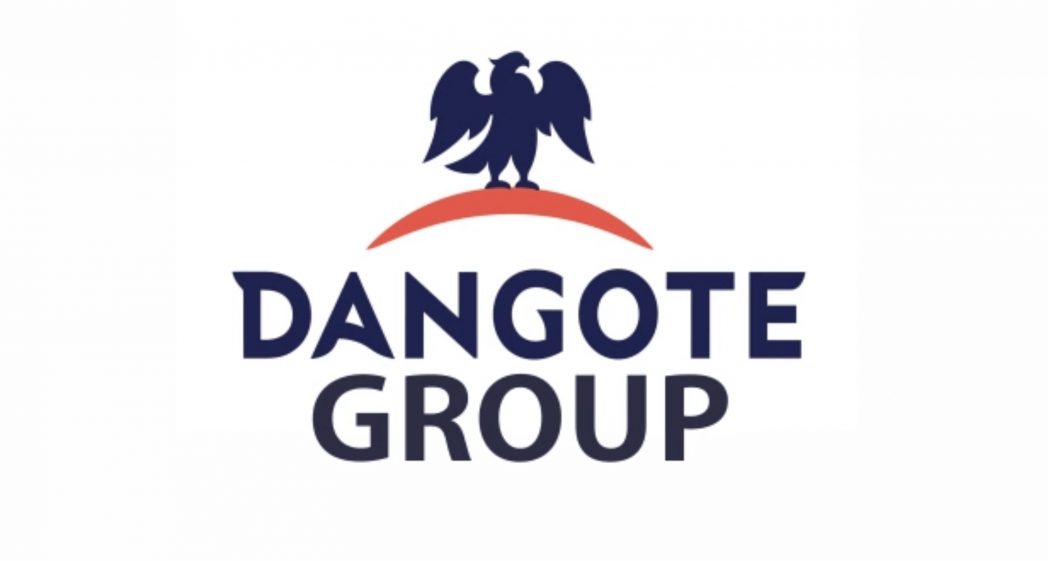News
No Plan To Increase Company Taxes -FIRS Chair
The newly appointed acting chairman of the Federal Inland Revenue Service, Zacch Adedeji, has allayed fears being expressed by corporate organisations that the resolve of FIRS to increase the country’s tax-to-GDP ratio to 18 per cent from 10.86 will lead to an increase in taxes.
Adedeji said such resolve would not necessarily lead to an increase in taxes or the introduction of new taxes as the President Bola Tinubu-led administration is determined to create a wholesome environment for businesses to flourish.
The FIRS chairman had said the agency under his leadership would, in the next three years, achieve an eight per cent rise in tax-to-GDP ratio to surpass Africa’s average of 16.5per cent without stifling investment or economic growth.
The plan had triggered muffled apprehensions among corporate entities that the decision could cause an increase in tax rates or the introduction of new ones.
Addressing representatives of top large tax-paying companies during a get-together at Four Points by Sheraton in Lagos on Wednesday, Adedeji said, “Our belief, understanding and vision as a revenue-generating agency is not to introduce any new tax as we only want to use data to improve compliance.”
A statement by his Special Adviser on Media and Communication, Dare Adekanmbi, yesterday, quoted the FIRS chairman as saying that the invited companies and those willing to carry out their tax obligations voluntarily have nothing to be afraid of.
“Our plan is simple. We want to grow tax revenue, and we only want to tax prosperity and not poverty.
“Therefore, it is not in our interest to kill the trees that bear the fruits. My first ‘love letter’ to you is to appreciate what you have done. So, you don’t have anything to be afraid of.
“We will not collect what is not due to us. But we don’t want anyone not to pay what is due to us. Fair engagement is our plan. Rest assured that the 18% tax-to-GDP target will not translate to an increase in taxes.
“If you have been listening to Mr Taiwo Oyedele who is the chairman of the Presidential Committee on Fiscal Policy and Tax Reforms, you will have known that part of the mandate of the committee is to reduce the number of taxes,” he said.
According to him, the purpose of the engagement with the companies is to factor their inputs into the strategic action plan being mapped out in order to address challenges hampering tax revenue collection.
He lauded the invited companies for their high sense of responsibility, urging them to continue to discharge their tax obligation diligently.
“I must also commend your commitment to upholding high tax compliance standards and responsible corporate citizenship, which sets you apart as the top taxpayers in Nigeria.
“This aligns perfectly with our vision of making taxation the pivot of national development through voluntary compliance. Your respective industries play a pivotal role in generating substantial tax revenue for the government and in shaping the economic and fiscal stability of the nation.
“We are not unmindful of the challenges facing businesses in Nigeria with the ongoing reforms to improve economic performance. These are painful but necessary choices we must make as a nation to attain our full potential,” he said.
The chairman, while responding to some of the concerns raised by representatives of the companies, such as the multiplicity of taxes and duplication of tax oversight on corporate entities, promised to address the issues raised.
Some of the companies at the event are Nestlé Nigeria Plc, ExxonMobil, Shell, Guinness, Nigerian Breweries Plc, Flour Mills, Dangote Group, MTN, British American and Tobacco company.F
Others include First Bank, Access Bank, Guaranty Trust Bank, Zenith Bank Plc, KC Gaming Limited (Bet9ja), Airtel, Seplat, BUA Cement, Nigeria Liquified Natural Gas, and NNPC Limited.
News
Dangote Stops Petrol Sale In Naira, Gives Condition For Resumption

Nigerians may experience an increase in the prices of premium energy products diesel and petrol as the Dangote Petroleum Refinery temporarily halts the sale of petroleum products in Naira.
“This decision is necessary to avoid a mismatch between our sales proceeds and our crude oil purchase obligations, which are currently denominated in US dollars,” the company said in a statement yesterday.
The $20billion refinery based in Lagos said the sales of its products in Naira have exceeded the value of Naira-denominated crude it has received from the Nigerian National Petroleum Company Limited (NNPCL).
“As a result, we must temporarily adjust our sales currency to align with our crude procurement currency,” the company explained.
The refinery said it remained committed to serving the Nigerian market and would resume the sale of its product to the local market in Naira as soon as it received crude cargoes from the NNPCL in Naira.
“As soon as we receive an allocation of Naira-denominated crude cargoes from NNPC, we will promptly resume petroleum product sales in Naira,” it said.
The announcement by the refinery comes amid its price war with the NNPCL.
As part of moves to reduce the strain on the US dollars, and guarantee price stability of petroleum products, the Federal Executive Council (FEC) in July 2024, directed the NNPCL to sell crude oil to Dangote Refinery and other local refineries in naira and not in United States’ greenback.
In the beginning of March 2025, the NNPCL said its Naira-denominated crude sales agreement with the Dangote Refinery was structured for six months with March 2025 as the expiration date.
The state company, however, said that talks were on to replace the contract, and that over 48 million barrels of crude oil have been made available to Dangote Refinery since October 2024 under the Naira-denominated arrangement.
The NNPCL also said it had made over 84 million barrels of crude oil available to the private refinery since it commenced operations in 2023.
Nigeria, Africa’s most populous nation, faces energy challenges, with all its state-owned refineries non-operational for decades until 2024. The country was heavily reliant on imported refined petroleum products, with the state-run NNPCL being the major importer of the essential commodities.
Fuel queues are commonplace in the country. Prices of petrol more than quadrupled since the removal of subsidy in May 2023 by President Bola Tinubu, from around ¦ 200/litre to about ¦ 1,000/litre, compounding the woes of the citizens who power their vehicles, and generating sets with petrol, no thanks to decades-long epileptic electricity supply.
Last December, the billionaire industrialist commenced operations at the facility situated in Lagos with 350,000 barrels a day. The refinery, which was initially bogged by regulatory battles, hopes to achieve its full capacity of 650,000 barrels per day by the end of the year. The refinery has begun the supply of diesel and aviation fuel to marketers in the country and now petrol.
News
Aruna Displaces Assar As Africa’s Top-Ranked Star
Nigeria’s Quadri Aruna has overtaken Egypt’s Omar Assar to become Africa’s highest-ranked player in the world, now sitting at 18th in the week 12 ranking released on Tuesday.
Aruna moved up from 19th place in week 11 to 18th in the latest ranking, while Assar dropped from 17th to 19th.
Denmark’s Jonathan Groth took over Assar’s 17th place, moving up from 18th.
Despite finishing as runner-up at the 2025 ITTF Africa Cup, Aruna’s impressive performances at the WTT tournaments this year have boosted his ranking.
Aruna remains the only African male player to have reached the semi-finals of the WTT Contender Doha, repeating his 2023 feat earlier this year in January.
This achievement has propelled him ahead of Assar, who beat him to become the champion of the 2025 ITTF Africa Cup.
Aruna’s next tournament is the WTT Contender Chennai which serves off in India from March 23 to 20.
In the women’s singles, Egypt’s Hana Goda maintained her top spot in Africa, moving up one place to 26th in the week 12 ITTF ranking. Her compatriot, Dina Meshref, remained static at 33rd, holding her position as the second-best-ranked female player in Africa.
China’s Wang Chuqin retained his position as the second-best player globally, behind his compatriot Lin Shidong, who continues to hold the top spot. Japanese superstar Tomokazu Harimoto dethroned China’s Liang Jingkun as the third-best player in the world after his semifinal finish in Chongqing.
In the women’s ranking, the top five remained unchanged, with China’s Sun Yingsha holding onto her top spot after retaining her WTT Champions Chongqing title.
News
NSPRI Empowers Agri-preneurs For Independence, Postharvest Loss Reduction
-

 News3 days ago
News3 days agoNAFDAC Alerts Public On Counterfeit Injection
-
Politics2 days ago
Senate, Reps Endorse Emergency Rule In Rivers, As Akpabio Shuts Down Dickson
-

 Entertainment1 day ago
Entertainment1 day ago“French Up Your Career” PH, 2025 :Consul General Of France Harps On Proficiency In French
-

 News3 days ago
News3 days agoN’Assembly Okays Emergency Rule In Rivers …Proposes National Reconciliation Committee For Rivers Crisis
-
Sports2 days ago
Aruna Up For $275k WTT Chennai
-
Niger Delta2 days ago
Delta Committed To Peace Sustenance In Riverine Communities’
-
Nation2 days ago
Troops Capture Wanted Terrorists
-
Rivers3 days ago
Rivers Emergency Rule, Desperation Taken Too Far, Ijaw Group Tells Tinubu

